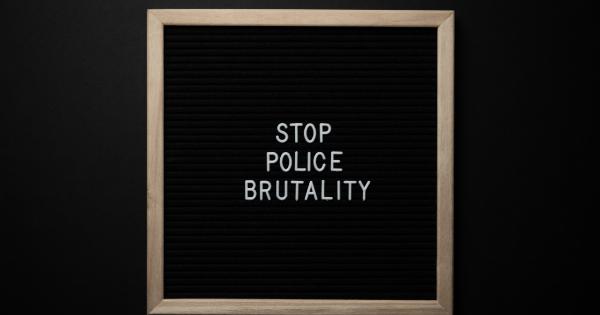Words have the power to shape our reality, to build bridges or burn them down, to ignite love or sow the seeds of hatred. Though intangible, words have the ability to leave scars that can last a lifetime.
Unlike physical wounds, emotional scars inflicted by hurtful words do not heal easily and can have a profound impact on an individual’s self-esteem, mental health, and overall well-being. In this article, we will explore the lasting effects of verbal abuse, cyberbullying, and negative self-talk, and discuss strategies for healing and finding resilience in the face of hurtful words.
The Power of Verbal Abuse
Verbal abuse refers to the use of words, tone, or behavior that is intended to degrade, criticize, or belittle another person. It can occur in various settings, such as intimate relationships, workplaces, or even within families.
The impact of verbal abuse goes beyond the momentary sting of hurtful words.
The Lasting Effects of Verbal Abuse
When subjected to consistent verbal abuse, individuals may internalize the negative messages they receive.
Over time, repeated exposure to such abuse can erode one’s self-worth and self-confidence, leading to feelings of worthlessness, self-doubt, and even depression. The scars left by verbal abuse can deeply affect an individual’s ability to trust others, form healthy relationships, and express themselves freely.
Cyberbullying: The New Playground
In the digital age, words can cause harm beyond the confines of physical spaces. Cyberbullying, the act of using electronic communication to intimidate, harass, or threaten others, has become prevalent, especially among young people.
Unlike traditional bullying, cyberbullying can reach a wider audience and leave indelible scars on the psyche.
The Enduring Impact of Cyberbullying
The words used in cyberbullying attacks can haunt victims long after the incident has occurred.
The anonymity afforded by the internet often emboldens bullies, leading them to engage in cruel and hurtful behavior they might shy away from in face-to-face interactions. Victims of cyberbullying may feel trapped, fearing social interaction, developing anxiety, depression, or even contemplating self-harm.
The Battle Within: Negative Self-Talk
While hurtful words from others undoubtedly have an impact, the words we say to ourselves can be equally destructive. Negative self-talk refers to the critical and belittling inner dialogue that often becomes a vicious cycle of self-deprecation.
This internalized negative dialogue not only damages self-esteem but also limits personal growth, hampers relationships, and undermines overall happiness.
The Weight of Negative Self-Talk
When we constantly put ourselves down through negative self-talk, we reinforce negative beliefs about our abilities and worthiness. This perpetual cycle of self-sabotage can hinder our pursuit of happiness, success, and personal fulfillment.
The scars left by negative self-talk can limit opportunities and prevent individuals from reaching their full potential.
Finding Healing and Resilience
While words can indeed leave scars, it is crucial to remember that healing is possible. With time, support, and self-reflection, individuals can reclaim their power and build resilience against the impact of hurtful words.
Seeking Support
One of the most vital steps towards healing is seeking support.
Whether from friends, family, or mental health professionals, having someone to confide in helps in processing the emotions associated with verbal abuse, cyberbullying, or negative self-talk. Therapy, support groups, or helplines can provide a safe space to express feelings, gain perspective, and learn coping strategies.
Reframing Negative Beliefs
Combatting the lasting impact of hurtful words involves challenging and reframing negative beliefs.
Working with a therapist or engaging in self-help techniques, individuals can identify negative thoughts patterns, replace them with positive affirmations, and develop a healthier self-image. Learning to embrace self-compassion and practicing self-care are vital in overcoming the scars of verbal abuse or negative self-talk.
Empowering Education
Education plays a significant role in promoting empathy, respect, and understanding. By integrating programs that address the impact of words, educators can create safe environments that discourage bullying and encourage open dialogue.
Empowering individuals with the knowledge and tools to navigate and combat the effects of hurtful words is essential for fostering long-term healing and resilience.
Spreading Kindness
Counteracting the harm caused by hurtful words requires a collective commitment to promoting kindness, empathy, and respect. Engaging in acts of kindness towards oneself and others can help break the cycle of negativity and promote healing.
Simple gestures such as offering words of encouragement, listening non-judgmentally, or standing up against bullying can make a significant difference in the lives of those affected by the scars of hurtful words.
Cultivating Inner Strength
In addition to seeking external support, developing inner strength is crucial for healing. Engaging in practices such as mindfulness, meditation, or journaling can aid in building resilience, self-awareness, and emotional regulation.
By nurturing our inner selves and focusing on personal growth, we can develop the strength to overcome the scars left by hurtful words and emerge stronger than before.
Conclusion
The old saying, “sticks and stones may break my bones, but words will never hurt me,” couldn’t be further from the truth. Words have the power to inflict wounds that can last a lifetime.
Whether through verbal abuse, cyberbullying, or negative self-talk, the impact of hurtful words can be profound, affecting our mental health, self-esteem, and overall well-being.
However, it is essential to recognize that healing and resilience are within our reach.
Seeking support, reframing negative beliefs, promoting kindness, and cultivating inner strength are powerful strategies for overcoming the scars left by hurtful words. By embracing these strategies and promoting understanding, empathy, and respect, we can create a world where words become instruments of love and healing.




























